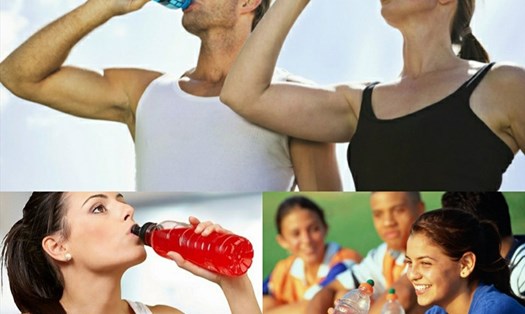Sports drinks
According to neurologist Sudhir Kumar, Apollo Hospital, Hyderabad (India), sports drinks are often used by athletes or those participating in high-intensity physical activity.
The main purpose of sports drinks is to replenish the amount of water, carbohydrates, and electrolytes (such as sodium and potassium) lost during exercise. These drinks help maintain water and energy balance for the body.
According to Dr. Veena Pai, a nutritionist at Lilavati Hospital Mumbai (India), sports drinks contain ingredients such as sugar, which provide quick energy, and electrolytes to maintain body moisture.
Although sugar in sports drinks can sometimes cause digestive discomfort, they are still a good choice for people participating in high-intensity physical activity.
Water increases energy
Increased energy drinks are primarily designed to increase energy and alertness. The main ingredients of energy drinks are caffeine and sugar, along with stimulants such as taurine, guarana and ginseng. However, energy drinks contain very few nutrients compared to sports drinks.
Dr. Veena Pai says energy drinks act as a stimulant, helping to stay alert for a short time, but if consumed regularly, the high sugar content in them can be harmful to health.
In addition, increased caffeine levels in water can increase stomach acid production, leading to problems such as acid reflux or gastritis.
Meanwhile, Dr. Nadendla Hazarathaiah, a gastroenterologist at Gleneagles Global Hospital, Lakdikapul, Hyderabad (India) warned that energy drinks can also cause bloating, flatulence and irritation of the stomach lining, causing discomfort or nausea.
Note
Thus, sports drinks help the body re hydrate and provide energy during exercise, while energy drinks mainly increase temporary alertness.
However, both of these drinks can have a negative impact on health if consumed in excess, especially for the digestive system.
Experts recommend replacing these drinks with healthier options such as lemon juice, coconut water or vegetable juice.









